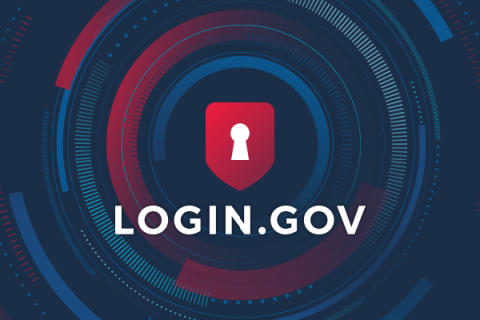Privacy
As agencies carry out their diverse missions, they must also respect and protect personally identifiable information (PII).
For the public to have trust in government institutions, they need to know that their personal information is secure, and will be used only for legitimate purposes. Privacy violations can put people at risk for identity theft, financial fraud, discrimination, harassment, or even physical harm. By following federal rules and regulations regarding the collection, use, and disclosure of personal information, agencies can mitigate such risks to their customers.
Privacy Act of 1974 & various OMB memos

Resources on Privacy
-
An introduction to privacy
Introductory guidance on implementing privacy protections for users of federal websites.
-
Privacy-Preserving Collaboration Using Cryptography
In conjunction with her May 2020 presentation, Dr. Emily Shen outlines her work on Secure multi-party computation (MPC), a type of cryptography that allows parties to jointly analyze their data without disclosing it.
-
Guidelines on securing public web servers
The World Wide Web (WWW) is a system for exchanging information over the Internet. At the most basic level, the web can be divided into two principal components: web servers, which are applications that make information available over the Internet (in essence, publish information), and web browsers (clients), which are used to access and display the information stored on the web servers. This document focuses on the security issues of web servers.
Privacy events
Privacy news
FedRAMP governance
The Federal Risk and Authorization Management Program (FedRAMP) has recently updated its governance structure to better serve its customers. Learn about their recently-formed FedRAMP Board, composed of federal executives; the FedRAMP Technical Advisory Group (TAG), composed of technology experts; and updates made to the Federal Security Cloud Advisory Committee (FSCAC). These groups collectively aim to strengthen and expand FedRAMP’s cloud service capabilities. — via FedRAMP

Reconsidering the consent form: the least user-friendly aspect of UX research
The Open Data, Design, and Development (ODDD) team has replaced signed consent forms with a more accessible user research agreement process, offering multiple opt-in points. This ensures informed consent and participant autonomy. Explore why and how the ODDD team implemented this comprehensive participant consent process in their user research. — via Office of Natural Resources Revenue

Balancing priorities and values
This article summarizes four priorities and values that simply take time: consideration of the public’s time, privacy, accessibility and equity, and scope.
Why the American People Deserve a Digital Government
OMB released new policy guidance for government that includes a variety of actions and standards to help federal agencies design, develop, and deliver modern websites and digital services. Memo M-23-22, Delivering a Digital-First Public Experience, will make it seamless for the public to obtain government information and services online, and help agencies fully implement the 21st Century Integrated Digital Experience Act (21st Century IDEA). — via The White House

The Privileged Identity Playbook Guides Management of Privileged User Accounts
The Privileged Identity Playbook is a practical guide to help federal agencies implement and manage a privileged user management function as part of an overall agency ICAM program.
Resources on Privacy
-
An introduction to privacy
Introductory guidance on implementing privacy protections for users of federal websites.
-
Privacy-Preserving Collaboration Using Cryptography
In conjunction with her May 2020 presentation, Dr. Emily Shen outlines her work on Secure multi-party computation (MPC), a type of cryptography that allows parties to jointly analyze their data without disclosing it.
-
Guidelines on securing public web servers
The World Wide Web (WWW) is a system for exchanging information over the Internet. At the most basic level, the web can be divided into two principal components: web servers, which are applications that make information available over the Internet (in essence, publish information), and web browsers (clients), which are used to access and display the information stored on the web servers. This document focuses on the security issues of web servers.
More News and Events on Privacy
9 posts
FedRAMP governance
The Federal Risk and Authorization Management Program (FedRAMP) has recently updated its governance structure to better serve its customers. Learn about their recently-formed FedRAMP Board, composed of federal executives; the FedRAMP Technical Advisory Group (TAG), composed of technology experts; and updates made to the Federal Security Cloud Advisory Committee (FSCAC). These groups collectively aim to strengthen and expand FedRAMP’s cloud service capabilities. — via FedRAMP

Reconsidering the consent form: the least user-friendly aspect of UX research
The Open Data, Design, and Development (ODDD) team has replaced signed consent forms with a more accessible user research agreement process, offering multiple opt-in points. This ensures informed consent and participant autonomy. Explore why and how the ODDD team implemented this comprehensive participant consent process in their user research. — via Office of Natural Resources Revenue

Balancing priorities and values
This article summarizes four priorities and values that simply take time: consideration of the public’s time, privacy, accessibility and equity, and scope.
Why the American People Deserve a Digital Government
OMB released new policy guidance for government that includes a variety of actions and standards to help federal agencies design, develop, and deliver modern websites and digital services. Memo M-23-22, Delivering a Digital-First Public Experience, will make it seamless for the public to obtain government information and services online, and help agencies fully implement the 21st Century Integrated Digital Experience Act (21st Century IDEA). — via The White House

The Privileged Identity Playbook Guides Management of Privileged User Accounts
The Privileged Identity Playbook is a practical guide to help federal agencies implement and manage a privileged user management function as part of an overall agency ICAM program.
5 Tips for Implementing Citizen Development in Your RPA Program
The Robotic Process Automation (RPA) Community of Practice highlights five key points for implementing RPA citizen developers, as shared by federal subject matter experts James Gregory (General Services Administration), Frank Wood (Defense Logistics Agency), and Russ Kuehn (Social Security Administration) during their recent webinars with the Federal RPA Community of Practice.
Security is Everyone’s Responsibility: Delivering Secure, Usable Login for Government
How login.gov incorporated human centered design and continuous discovery into their product development process to improve the user experience.
A Dashboard for Privacy Offices
A Dashboard for Privacy Offices—Through work funded by 10x, a team from 18F investigated how technology can help busy privacy offices manage your PII, and make their work more accessible and understandable for the public. — via 18F










